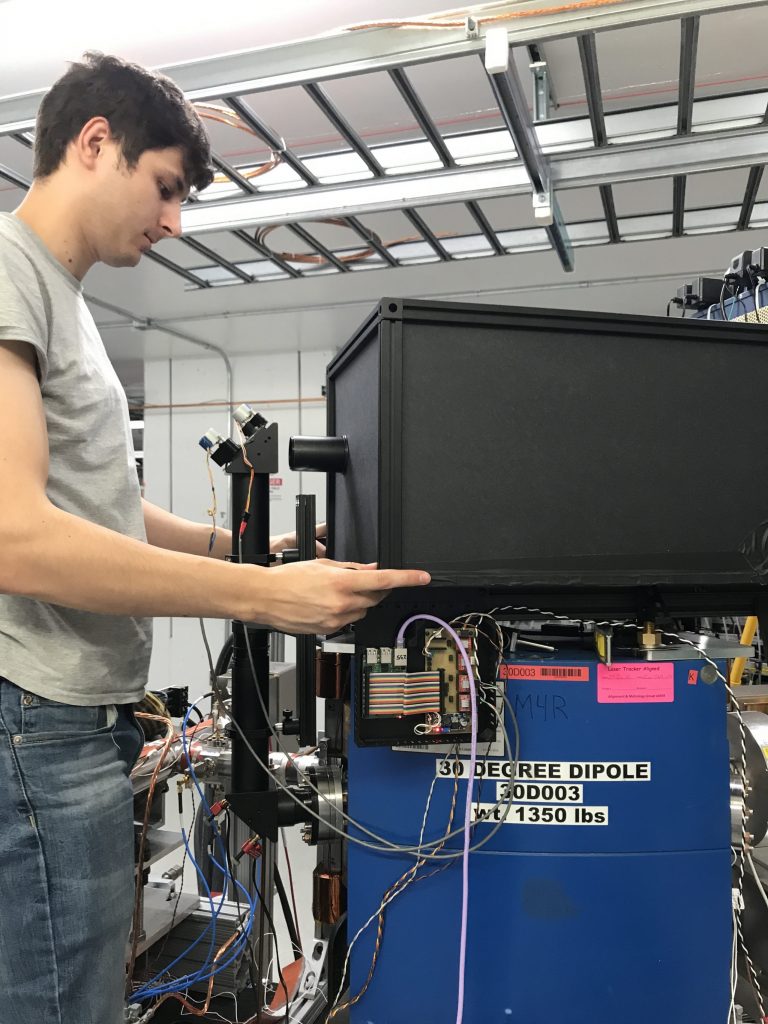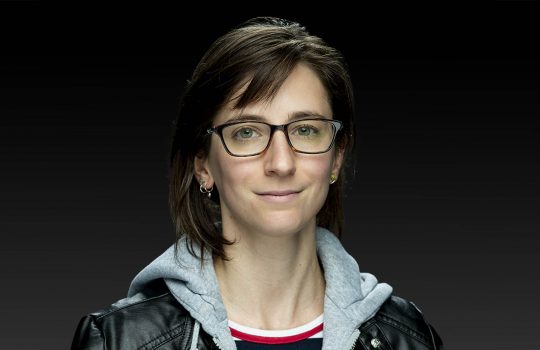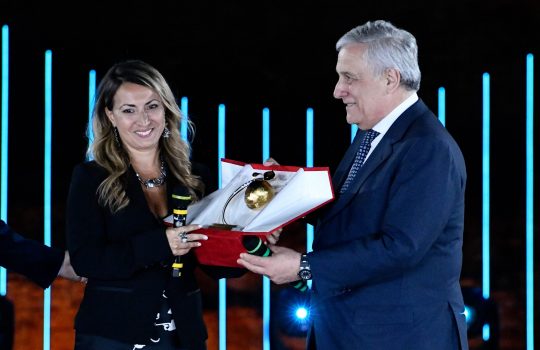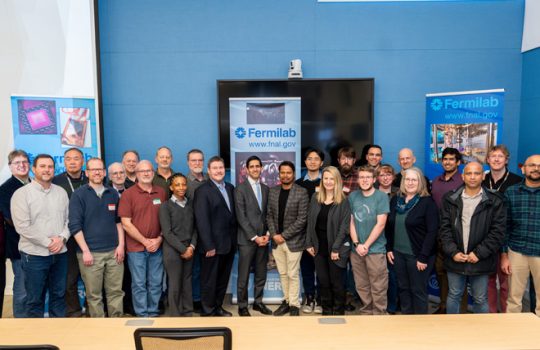The American Physical Society has awarded Ihar Lobach its 2022 Outstanding Doctoral Thesis Research in Beam Physics Award. Cited for “outstanding research contributions to our understanding of undulator radiation fluctuations, and for developing an experimental method to determine electron beam properties from these fluctuations,” Lobach conducted his thesis research at the U.S. Department of Energy’s Fermi National Accelerator Laboratory.
The APS’s annual Outstanding Doctoral Thesis Research in Beam Physics Award recognizes doctoral thesis research of outstanding quality and achievement in beam physics and engineering. The award comes with $2,500, a certificate and travel reimbursement up to $500. Lobach will also receive a registration waiver to receive the award and present at the April 2022 meeting of the APS Division of Physics of Beams.
After receiving his bachelor’s degree in physics from the Belarusian State University in 2017, Lobach matriculated at the University of Chicago and joined the Fermilab Accelerator Ph.D. program in 2018. He completed his doctoral degree in particle accelerator physics at the University of Chicago in 2021. A former summer intern in what is now known as the Helen Edwards internship program, Lobach returned to Fermilab to Fermilab to conduct his thesis research at the lab’s Integrable Optics Test Accelerator, or IOTA, storage ring, under the guidance of Sergei Nagaitsev, head of accelerator science programs and professor at the University of Chicago, and Giulio Stancari, senior scientist. He studied the statistical properties of the undulator radiation generated by a bunch of electrons and by a single electron circulating in the ring.
Cited for “outstanding research contributions to our understanding of undulator radiation fluctuations, and for developing an experimental method to determine electron beam properties from these fluctuations,” Ihar Lobach conducted his thesis research at the U.S. Department of Energy’s Fermi National Accelerator Laboratory.
Also the recipient of the 2021 University of Chicago Nathan Sugarman Award for Excellence in Graduate Research, Lobach has now begun his postdoctoral appointment at the Advanced Photon Source in Argonne National Laboratory. His research focuses on applications of machine learning for accelerator tuning, control and anomaly detection.
Fermi National Accelerator Laboratory is supported by the Office of Science of the U.S. Department of Energy. The Office of Science is the single largest supporter of basic research in the physical sciences in the United States and is working to address some of the most pressing challenges of our time. For more information, please visit science.energy.gov.




